November 21, 2020
The most caring parents in the wild
As in the world of humans, there are different parents among animals. Some forget about their children as soon as they are born, replacing the quality of care with the number of descendants - someone will survive. And there are those who tenderly care for babies until they become adults and can start an independent life.
Who can be considered the most caring parents in the animal world?
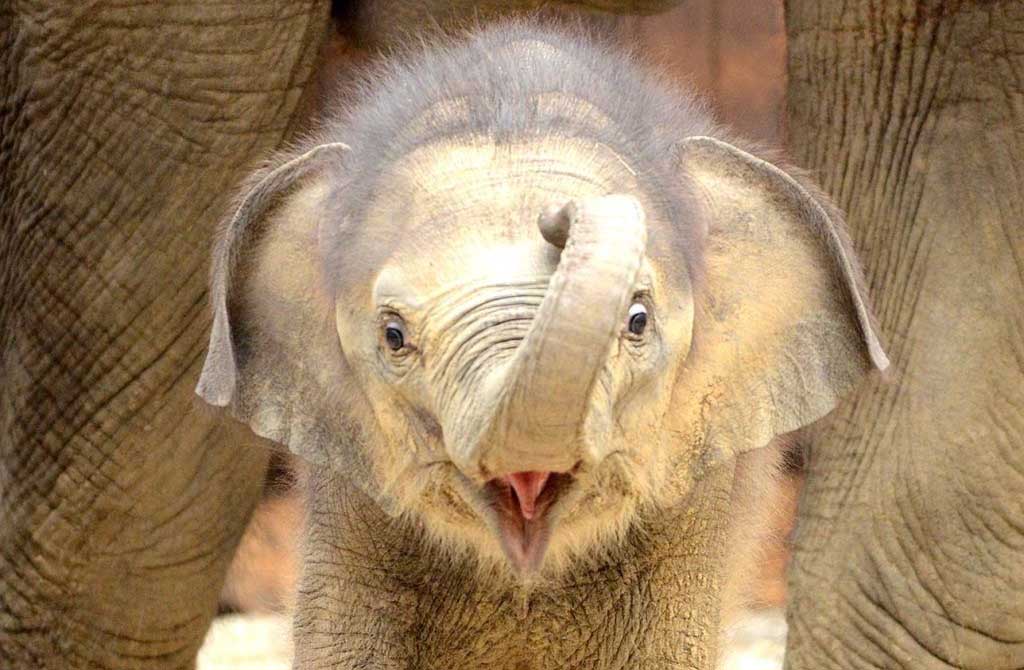
-
Elephants. A female elephant bears a cub for 22 months. A newborn baby elephant weighs about 100 kg, but it is blind and completely helpless. Mother elephant takes care of him until he is 2 years old, until he grows up and becomes an adult young elephant. All the females of the herd help her in this. Everyone is ready to look after the baby, regardless of family ties.
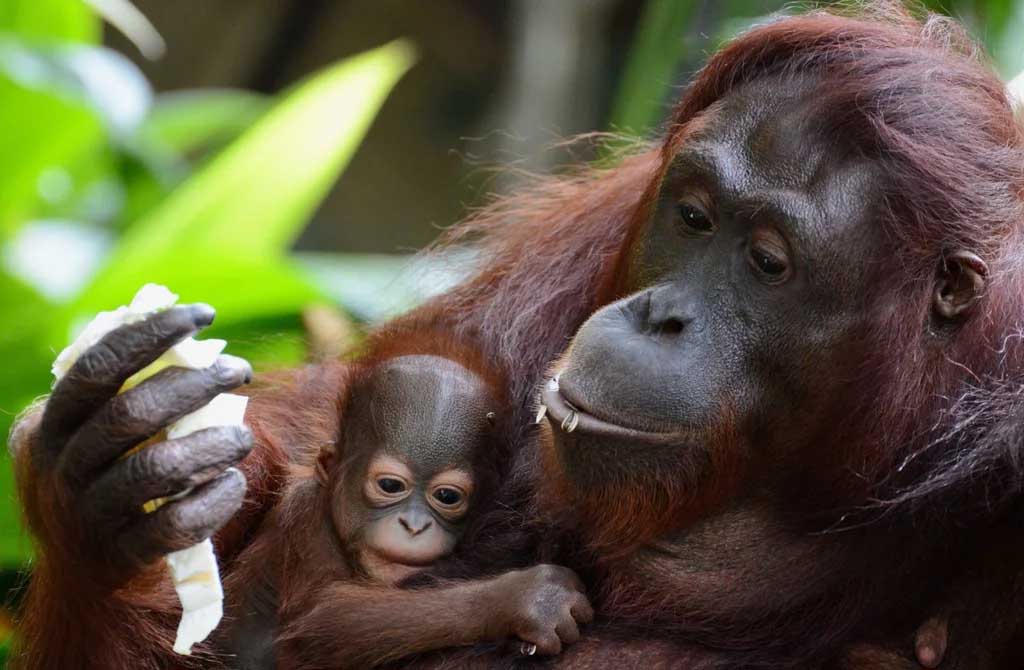
-
Orangutans. A female orangutan gives birth to a cub about once every 8 years and takes care of it for the first 5-6 years, not parting with the baby literally for a minute. This is a record among mammals (not counting humans, of course). Interestingly, if young males themselves strive for independence, then females can stay with their mother even longer, adopting her life experience.
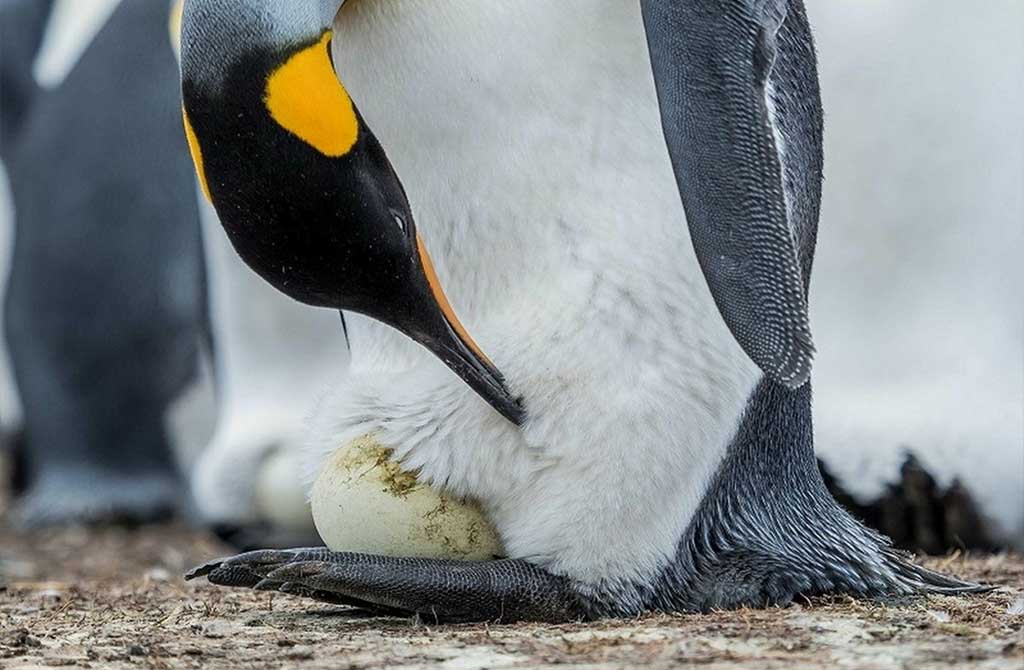
- Penguins. These are the most selfless fathers of the animal world. After laying an egg, the female penguin goes to the sea to eat enough and recuperate, for as long as 2 months. The male sits still all the time, warming the eggs, which he hides in a special fold between his legs. Until the baby penguin is born, the father does not leave the nest, does not eat and practically does not move. Given that the temperature in Antarctica in the summer from -25 to -45°C, and in the winter from -60 to -70°C, this is a real feat in the name of posterity.
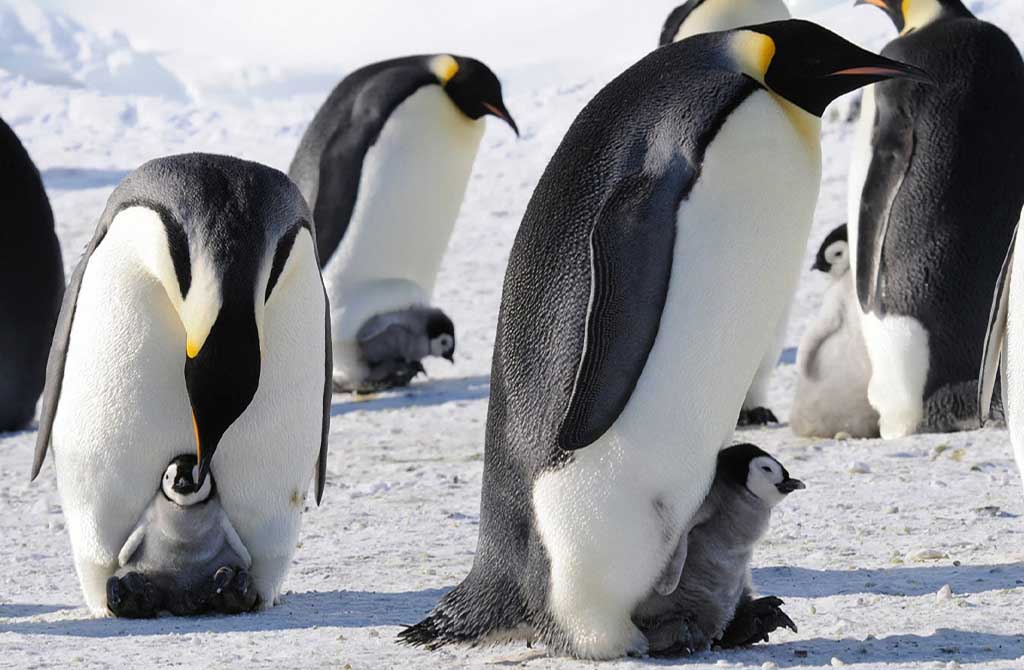
The penguin colony has a nursery for Chicks, so that after the children are born, parents can go in search of food together. When they return, they regurgitate food and feed the babies, while unmistakably finding their child in the crowd of squeaking penguins.
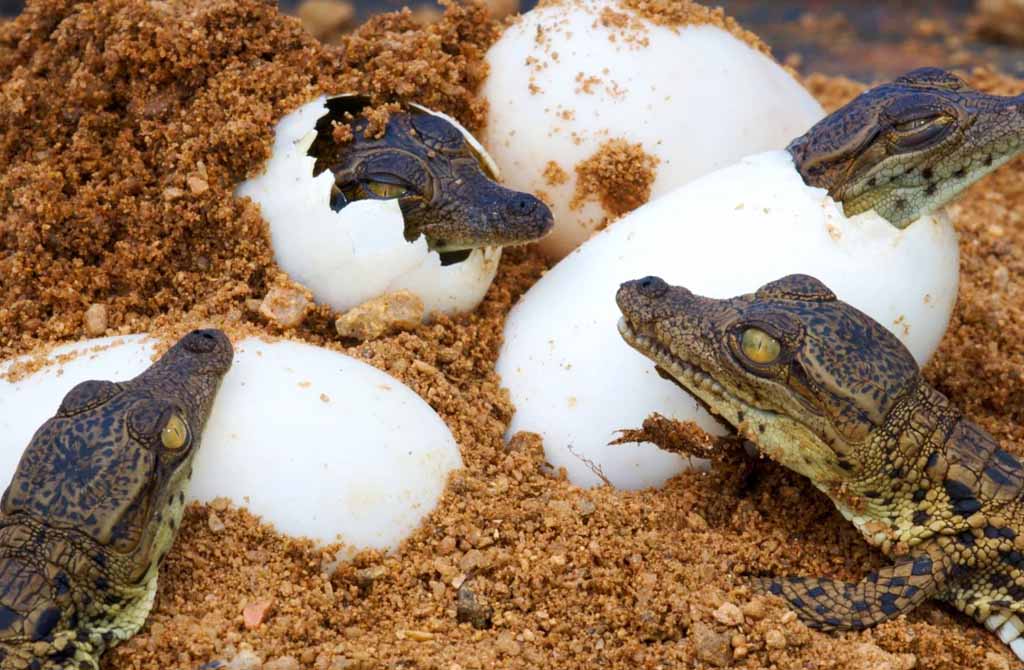
-
Alligators. Looking at these animals, it is extremely difficult to imagine them as gentle and caring parents. And yet, it is true. Unlike much less aggressive and more cute turtles, which simply bury their eggs in warm sand and leave, the female alligator builds a nest and maintains a constant temperature in it due to the heat released by rotting leaves. If the temperature is about 30°C, females will hatch from the eggs, if above 34°C - males. So an alligator, unlike us, can program the gender of its children. All at once, though. The incubation period lasts 2 months.
After the little alligators are born, the mother carefully transfers them in her mouth to the water and continues to take care of them for another year, protecting and teaching them the subtleties of hunting.
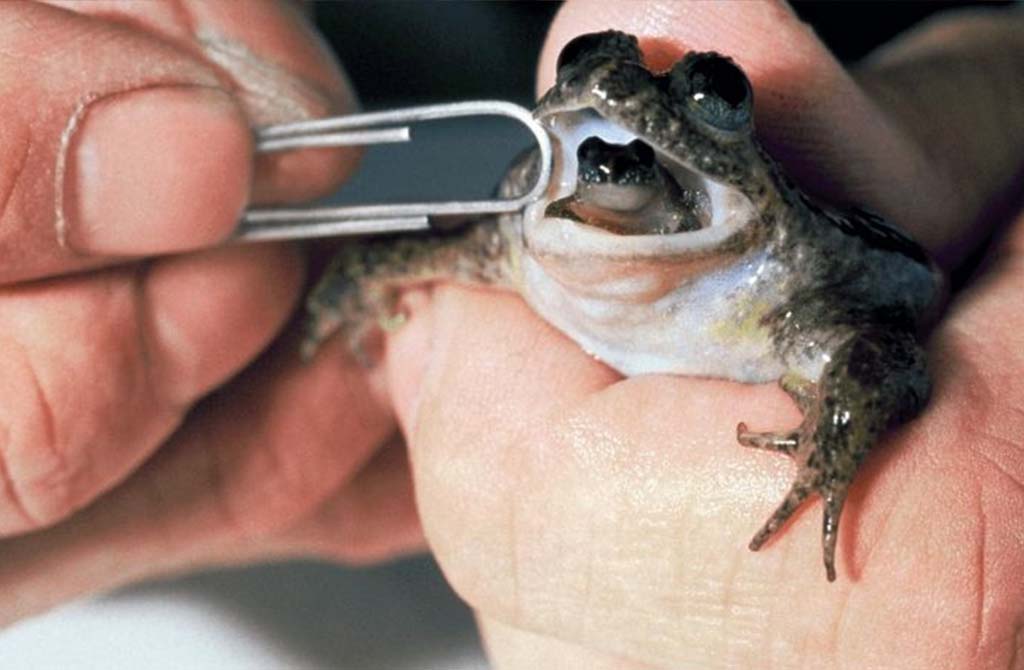
-
Caring frog. At first, scientists called this frog a cannibal because they saw it swallow its own eggs and thought it was eating its offspring. However, this is not the case. For 7-8 weeks, the frog bears future frogs in the stomach, as in an incubator. At the same time, she completely stops the secretion of gastric juice and all this time she does not eat anything. The offspring of the Caring frog (this is its official name) remains in its stomach, even as tadpoles. And only after turning into frogs, it is born from the mother's mouth. This is the only frog species that carries babies in its stomach, and it lives in Australia.
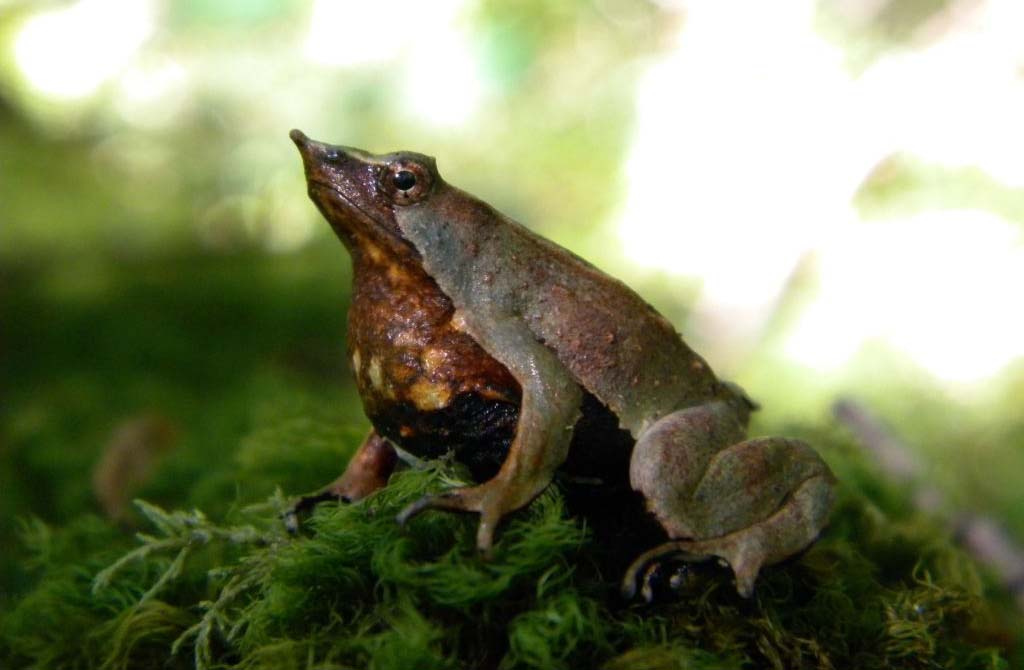
- Darwin's frog, which lives in the forest streams of Chile and Argentina, does the same. In this species, the eggs are swallowed by the male, but stored not in the stomach, but in the vocal sacs. After 6 weeks, when it's time for the frogs to be born, the father simply burps them.
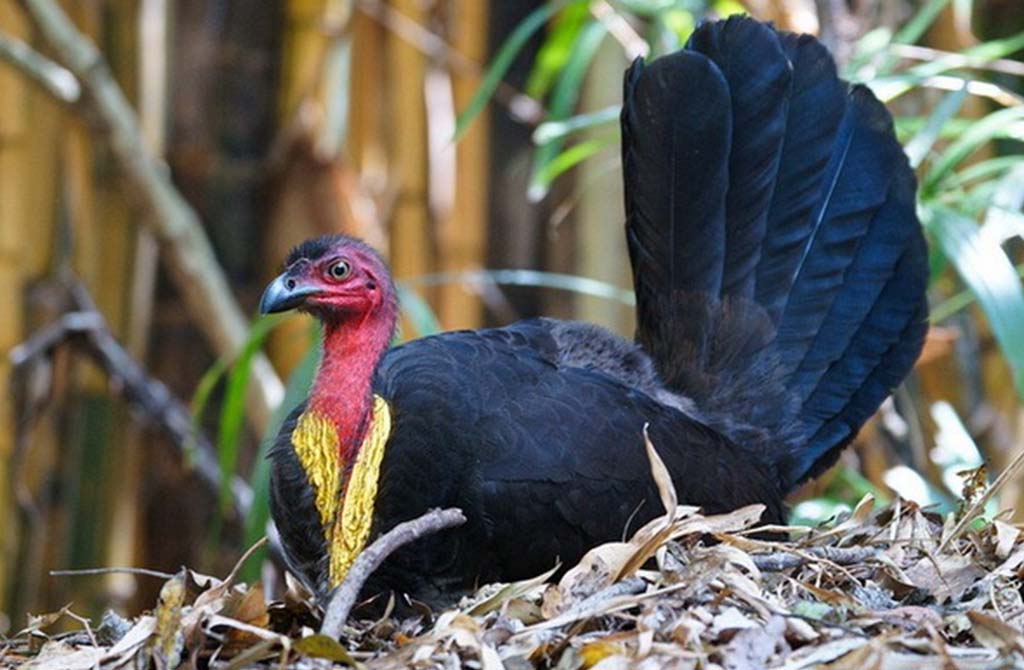
-
Bigfoot (weed chicken). Another caring father from the world of birds is Bigfoot, who lives on the Pacific Islands and in Australia. The female builds a nest out of fallen leaves and grass, lays eggs in it, and leaves. After that, the care of the offspring falls entirely on the father. For 11 months, it protects the clutch and maintains a constant temperature of 33.3°C in the nest. Warm secrete the rotting leaves, and the thermometer is devoid of feathers, the neck of the male. To determine the temperature, it dips its head into the nest several times an hour. According to scientists, the error of its measurements is only 0.1°C. If the nest is too hot, the father rakes off the extra leaves and lets the eggs cool; if it is too cold, he collects new ones.
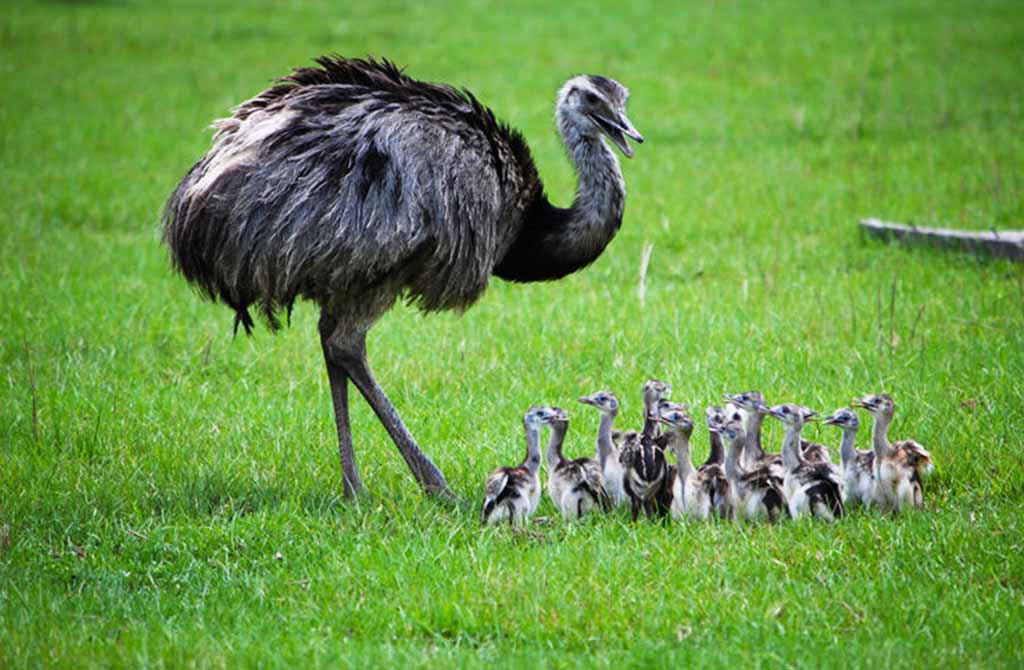
-
Nandu. If we talk about caring fathers, it would be wrong to keep silent about Nandu. At first glance, his behavior is that of a rake and a womanizer. He collects a harem of 5-12 females, and takes care of all in turn. But at the same time, he takes care of his wives: protects, helps to get food and build nests. But after the female lays eggs, she can easily go look for a new partner, and the Nandu father remains to take care of the offspring. He takes care of babies up to the age of two. This heroic father can take care of up to 50 Chicks at a time.
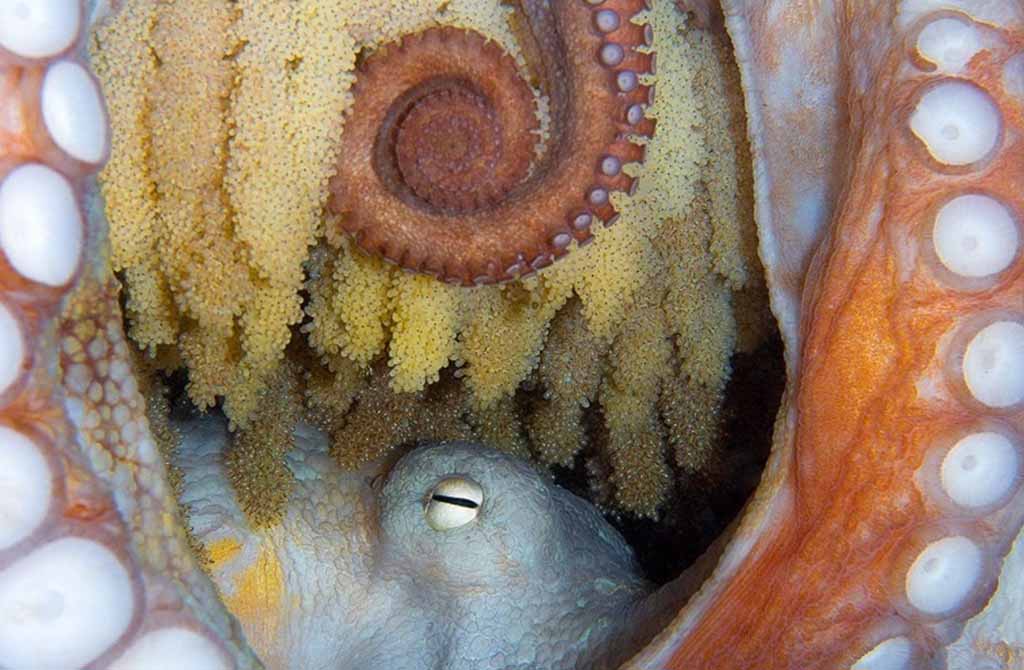
-
Octopus. Octopuses, like alligators, it is difficult to imagine in the role of caring parents. But for the sake of her children, the octopus mother is ready to sacrifice herself. A female octopus lays up to 40,000 eggs at a time and does not move away from them for 40 days. All this time, it protects future octopuses from predators and enriches the water with oxygen, creating a flow of water using a siphon. Until the offspring are born, she does not eat anything and may die of starvation for the sake of giving birth to babies.
Of course, it is much easier to take care of a child when diapers and baby food are at hand, but animals have their own techniques, and most importantly, a great desire to raise and protect their offspring, thanks to which they could get the title "parent of the year".
Read more
July 31, 2024
April 12, 2024
April 5, 2024